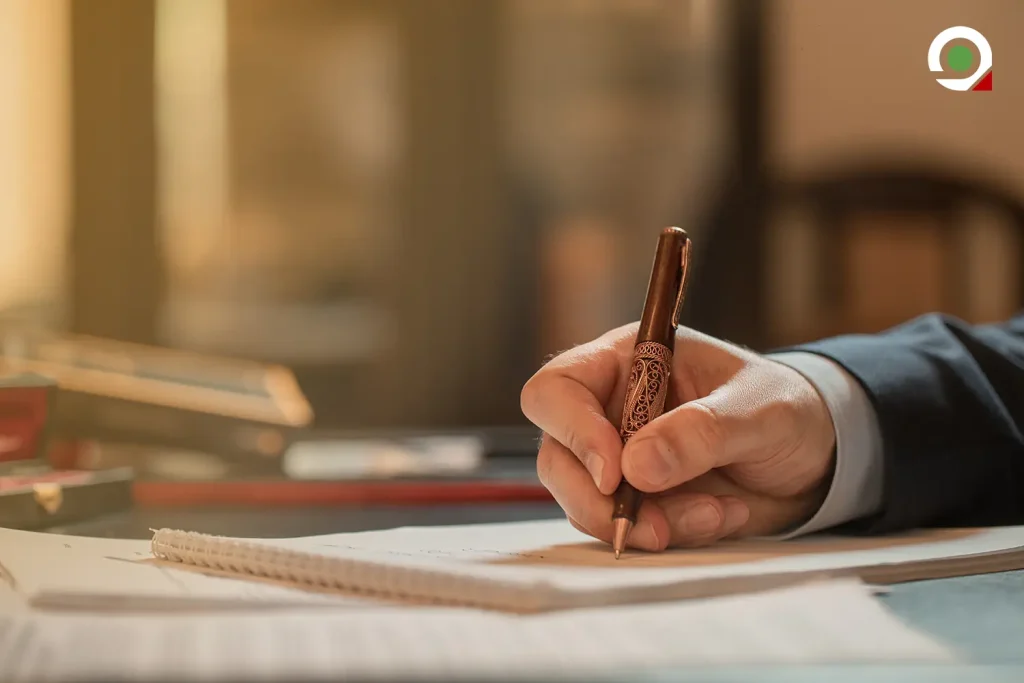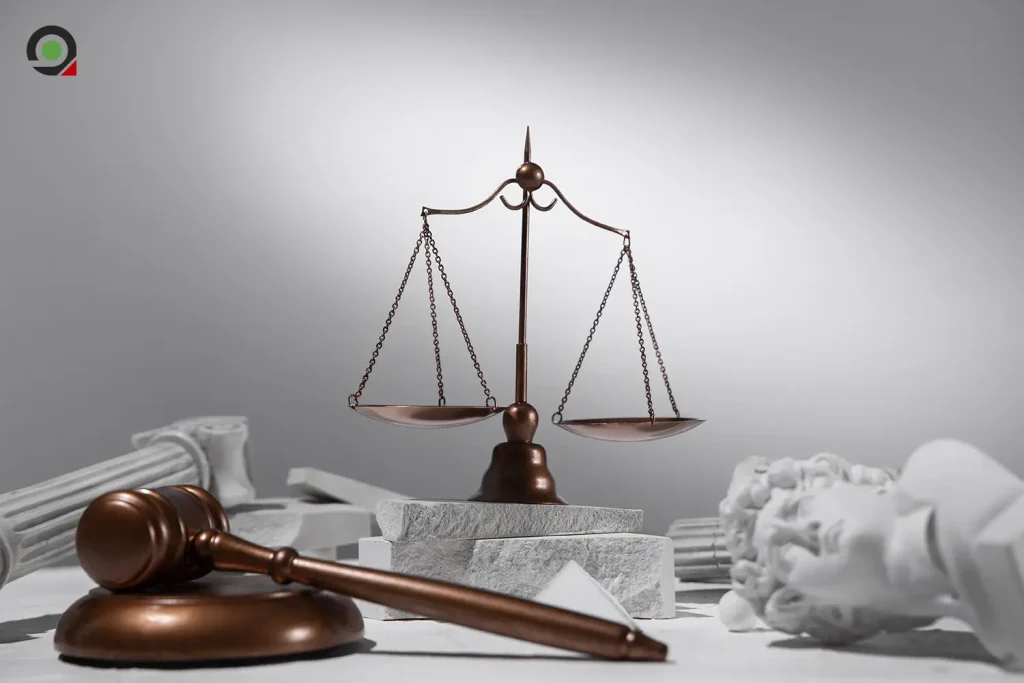Iranian Lawyers in the USA: Navigating Legal Landscapes with Expertise and Empathy
In a country as diverse and legally intricate as the United States, finding the right legal representation can be a daunting task, especially for immigrants and expatriates.
For Iranians living in the U.S., having access to lawyers who understand both the American legal system and the cultural nuances of Iranian society can make a significant difference.
This blog post delves into the world of Iranian lawyers in the USA, exploring their unique qualifications, the services they offer, and why they are an invaluable resource for anyone navigating legal challenges in a foreign land.
The Unique Value of Iranian Lawyers in the USA
Bridging Cultural and Legal Divides
One of the primary advantages of hiring an Iranian lawyer in the USA is their ability to bridge the cultural and legal divides that often complicate legal matters.
These lawyers are not only fluent in Farsi, but they also have a deep understanding of Iranian customs, traditions, and societal norms.
This cultural competence ensures that they can communicate effectively with Iranian clients and understand their specific needs and concerns.

Case Study: The Case of Family Law
Consider a scenario where an Iranian family is dealing with a complex divorce case.
The cultural expectations and family dynamics in Iranian society can be quite different from those in the U.S.
An Iranian lawyer would be well-equipped to navigate these differences, ensuring that the legal process respects the client’s cultural background while adhering to American laws.
Expertise in Immigration Law
Immigration law is one of the most critical areas where Iranian lawyers can offer significant expertise.
Given the complexities of U.S. immigration policies and the unique challenges faced by Iranian nationals, having a lawyer who is intimately familiar with these issues is crucial.
Case Study: Visa and Green Card Applications
For instance, the process of applying for visas or green cards can be particularly challenging for Iranians due to geopolitical tensions and specific restrictions.
An Iranian lawyer with experience in immigration law can help clients navigate these hurdles, providing guidance on everything from paperwork to interviews with immigration officials.
Multilingual Communication
Language barriers can be a significant obstacle in legal proceedings.
Iranian lawyers in the USA often speak multiple languages, including Farsi and English, which allows them to serve as effective intermediaries between their clients and the American legal system.
This multilingual ability ensures that clients fully understand their legal rights and options without the risk of miscommunication.
Building Trust Through Shared Experience
Trust is a cornerstone of any client-lawyer relationship.
Iranian lawyers, by virtue of their shared cultural and linguistic background, can build a level of trust and rapport with their clients that might be difficult for non-Iranian lawyers to achieve.
This trust can lead to more open and honest communication, ultimately resulting in better legal outcomes.

Types of Legal Services Offered by Iranian Lawyers
Immigration Law Services
Visa Applications
Iranian lawyers can assist with various types of visa applications, including:
Tourist Visas: Helping clients understand the requirements and prepare the necessary documentation.
Student Visas: Assisting Iranian students in securing the F-1 visa for their education in the U.S.
Work Visas: Guiding professionals through the H-1B visa application process.
Green Card and Citizenship
Securing permanent residency or citizenship in the U.S. involves intricate legal steps.
Iranian lawyers can provide comprehensive support throughout this process, from initial application to final interviews.
Family Law Services
Divorce and Child Custody
Family law can be particularly complex when it involves cross-cultural elements.
Iranian lawyers can offer guidance on:
Divorce Proceedings: Navigating the legal dissolution of marriage while considering cultural sensitivities.
Child Custody: Ensuring that custody arrangements reflect the best interests of the child and comply with both U.S. and Iranian legal principles.
Adoption
For Iranian families looking to adopt, understanding both American and Iranian adoption laws is crucial.
Iranian lawyers can help streamline this process, ensuring all legal requirements are met.
Business and Corporate Law
Starting a Business
For Iranian entrepreneurs, starting a business in the U.S. involves navigating a maze of regulatory requirements.
Iranian lawyers can assist with:
Business Formation: Advising on the best structure for the business (e.g., LLC, corporation).
Licensing and Permits: Ensuring all necessary licenses and permits are obtained.
Contracts: Drafting and reviewing contracts to protect the interests of the business.
Commercial Litigation
In the event of business disputes, Iranian lawyers can represent their clients in commercial litigation, leveraging their understanding of both American law and Iranian business practices.
Criminal Defense
Understanding the U.S. Criminal Justice System
For Iranian nationals facing criminal charges, understanding the U.S. criminal justice system is paramount.
Iranian lawyers can provide:
Legal Representation: Defending clients in court and negotiating with prosecutors.
Legal Counseling: Advising clients on their rights and the best course of action.
Estate Planning and Probate Law
Wills and Trusts
Estate planning is essential for protecting assets and ensuring that one’s wishes are honored after death.
Iranian lawyers can assist with:
Drafting Wills: Ensuring that the document complies with U.S. laws while reflecting the client’s intentions.
Creating Trusts: Establishing trusts to manage and distribute assets according to the client’s specifications.
Probate Proceedings
When a loved one passes away, the probate process can be emotionally and legally challenging.
Iranian lawyers can guide families through the probate court, ensuring that the decedent’s assets are distributed according to their wishes and in compliance with U.S. law.

Success Stories of Iranian Lawyers in the USA
A Triumph in an Immigration Case
Consider the story of Ali, an Iranian engineer who moved to the U.S. on a student visa.
After completing his studies, he was offered a job at a leading tech company.
However, the transition from a student visa to an H-1B work visa proved to be a complex and stressful process.
Ali turned to an Iranian lawyer who specialized in immigration law.
The lawyer’s deep understanding of the nuances involved in Ali’s case, combined with their ability to communicate in Farsi, provided Ali with the confidence and clarity he needed.
The lawyer meticulously prepared all the required documentation, guided Ali through each step of the process, and even provided emotional support during the tense waiting periods.
Ali successfully secured his H-1B visa and is now thriving in his career.
Navigating Family Law with Sensitivity
In another instance, Maryam, an Iranian-American woman, faced a challenging divorce.
Her marriage had broken down due to cultural clashes and differing expectations.
Feeling overwhelmed and isolated, she sought the help of an Iranian lawyer who specialized in family law.
The lawyer’s cultural competence and empathetic approach were instrumental in helping Maryam navigate the legal and emotional complexities of her divorce.
They ensured that the divorce settlement was fair and that Mary’s rights were protected, all while respecting her cultural background.
Maryam was able to move forward with her life, feeling supported and understood throughout the process.
Business Success for Iranian Entrepreneurs
Reza, an Iranian entrepreneur, had a vision to start a tech company in Silicon Valley.
However, navigating the legal requirements for establishing a business in the U.S. was daunting.
Reza enlisted the services of an Iranian lawyer with expertise in business law.
The lawyer provided invaluable advice on choosing the right business structure, securing necessary permits, and drafting robust contracts.
They also helped Reza understand the cultural nuances of doing business in the U.S., which differed significantly from Iran.
With the lawyer’s guidance, Reza successfully launched his company, which has since grown into a thriving enterprise.

Why Choose Iranian Lawyers in the USA?
Personalized and Culturally Sensitive Legal Services
Iranian lawyers offer personalized legal services that are sensitive to the cultural and social contexts of their clients.
This personalized approach ensures that clients feel heard, understood, and respected.
Strong Advocacy and Legal Expertise
These lawyers bring a wealth of legal expertise and a strong commitment to advocating for their clients’ rights.
Their ability to navigate both the American and Iranian legal frameworks enables them to provide comprehensive and effective legal representation.
Multilingual Communication
Fluency in both Farsi and English allows Iranian lawyers to communicate effectively with clients and legal professionals alike.
This multilingual ability eliminates language barriers and ensures clear, precise communication throughout the legal process.
Building Trust and Rapport
The shared cultural background helps Iranian lawyers build a strong rapport with their clients, fostering an environment of trust and mutual respect.
This trust is crucial for effective legal representation and positive outcomes.
Finding the Right Iranian Lawyer for Your Needs
Research and Referrals
Finding the right lawyer involves thorough research and seeking referrals.
Look for lawyers who specialize in the area of law relevant to your needs and who have a track record of success.
Consultation
Most lawyers offer an initial consultation to discuss your case. Use this opportunity to assess their expertise, communication style, and cultural competence.
Ensure that you feel comfortable and confident in their ability to represent you.
Professional Associations
Check if the lawyer is a member of professional associations such as the Iranian American Bar Association (IABA).
Membership in such organizations often indicates a commitment to high standards of practice and ongoing professional development.

Tips for Finding the Right Iranian Lawyer
1. Identify Your Legal Needs
Start by clearly identifying your specific legal needs.
Are you dealing with immigration issues, family law matters, business disputes, or criminal charges?
Knowing the precise area of law you need assistance with will help you narrow down your search to lawyers who specialize in that field.
2. Research and Referrals
Online Research
Law Firm Websites: Many law firms have detailed websites where you can learn about the lawyers’ specializations, experience, and client reviews.
Legal Directories: Use online legal directories such as Avvo, Martindale-Hubbell, or the American Bar Association’s directory to find Iranian lawyers in your area.
Social Media: Check LinkedIn profiles and other social media platforms for professional backgrounds and client testimonials.
Personal Referrals
Community Networks: Ask for recommendations from friends, family members, or colleagues within the Iranian community who have had similar legal needs.
Professional Associations: Contact professional organizations like the Iranian American Bar Association (IABA) for referrals.
3. Check Qualifications and Experience
Credentials
Education: Verify the lawyer’s educational background and legal qualifications.
Bar Membership: Ensure that the lawyer is licensed to practice in your state and in good standing with the state bar association.
Experience
Specialization: Look for lawyers who specialize in the area of law relevant to your needs.
Years of Practice: Consider the lawyer’s experience and track record in handling cases similar to yours.
4. Schedule Consultations
Many lawyers offer initial consultations, often at no charge or for a nominal fee.
Use this opportunity to:
Discuss Your Case: Provide a brief overview of your legal issue and see how the lawyer responds.
Assess Compatibility: Evaluate the lawyer’s communication style, cultural competence, and ability to understand your specific situation.
Ask Questions: Inquire about their experience with similar cases, their approach to handling your case, and their fee structure.
5. Evaluate Communication Skills
Effective communication is key to a successful lawyer-client relationship.
Ensure that the lawyer can communicate clearly and effectively in both Farsi and English, if necessary.
This will help prevent any misunderstandings and ensure that you fully understand your legal options and the progress of your case.
6. Consider Cultural Competence
Given the importance of cultural sensitivity in legal matters, particularly for Iranian clients, assess the lawyer’s understanding of Iranian customs, traditions, and societal norms.
This cultural competence can significantly impact the quality of representation and the overall experience.
7. Review Client Testimonials and Case Results
Look for reviews and testimonials from previous clients to gauge the lawyer’s reputation and success rate.
Positive feedback and successful case outcomes can be good indicators of the lawyer’s ability to handle your case effectively.
8. Evaluate Fee Structures
Understanding the lawyer’s fee structure is crucial to avoid any financial surprises. Ask about:
Hourly Rates vs. Flat Fees: Determine whether the lawyer charges by the hour or offers flat fees for specific services.
Retainer Fees: Inquire if a retainer fee is required and how it will be utilized.
Payment Plans: Check if the lawyer offers flexible payment options to accommodate your financial situation.
9. Verify Professional Memberships
Membership in professional associations, such as the Iranian American Bar Association (IABA) or other relevant legal organizations, can indicate a lawyer’s commitment to high standards of practice and continuing legal education.
10. Trust Your Instincts
Lastly, trust your instincts. Choose a lawyer who makes you feel comfortable and confident in their abilities.
Your lawyer should be someone you can trust and rely on throughout your legal journey.
Finding the right Iranian lawyer for your specific legal needs involves thorough research, careful consideration, and a bit of intuition.
By identifying your legal needs, conducting detailed research, checking qualifications, and assessing communication and cultural competence, you can find a lawyer who will provide the expertise and support you require.
Remember, the right lawyer can make a significant difference in the outcome of your legal matter.
Take the time to choose wisely, and you’ll be well-equipped to navigate the complexities of the legal landscape with confidence and peace of mind.

Key Questions to Ask During the Initial Consultation to See Whether the Lawyer is A Good Fit
The initial consultation with a lawyer is a critical step in determining whether they are the right fit for your legal needs.
Here are some key questions to ask during this meeting:
Experience and Expertise
What is your area of specialization?
.Ensure the lawyer has expertise in the specific area of law related to your case (e.g., immigration, family law, business law).
How many years have you been practicing law?
.Experience can be a crucial factor in handling complex legal issues.
Have you handled cases similar to mine before?
.Look for specific experience with cases that are similar in nature to yours.
What were the outcomes of those cases?
.Understanding past successes can give you confidence in the lawyer’s ability to handle your case.
.Approach and Strategy
What is your approach to handling cases like mine?
.Gain insight into their strategy and how they plan to tackle your legal issue.
What are the possible outcomes of my case?
.Discuss the best-case and worst-case scenarios to set realistic expectations.
How will you keep me informed about the progress of my case?
.Communication is key. Make sure the lawyer has a plan for keeping you updated.
.Fees and Costs
What is your fee structure?
.Understand whether they charge an hourly rate, a flat fee, or a contingency fee, and what each of these entails.
Are there any additional costs I should be aware of?
.Clarify if there will be extra charges for things like court fees, document preparation, or other expenses.
Do you offer payment plans or flexible payment options?
.Ensure you understand the financial commitments and whether there are flexible payment solutions.
.Cultural Competence
How familiar are you with Iranian customs and cultural nuances?
.Cultural competence can be important, especially if your legal issue involves aspects that are deeply intertwined with cultural practices.
Do you speak Farsi, and how comfortable are you in communicating in both Farsi and English?
.Language barriers can complicate legal matters, so ensure clear communication.
.Professional Background
Are you a member of any professional organizations, such as the Iranian American Bar Association (IABA)?
.Membership in professional organizations can indicate a commitment to ongoing professional development and adherence to high standards.
Have you ever faced any disciplinary actions?
.Check their standing with the state bar association to ensure they have a clean professional record.
.Client Relationship
What is your availability?
.Understand how accessible the lawyer will be, especially if urgent issues arise.
Who else will be working on my case?
.Determine if other team members or associates will be involved and understand their roles.
How do you handle conflicts of interest?
.Ensure that the lawyer has a clear policy to avoid any potential conflicts that could affect your case.
.Case-Specific Questions
What is the estimated timeline for my case?
Get an idea of how long it might take to resolve your legal issue.
What are the next steps if I decide to hire you?
Understand the immediate actions that will be taken once you engage their services.
Can you provide references from past clients?
.Speaking with previous clients can give you additional insights into the lawyer’s performance and client satisfaction.
Asking these questions during your initial consultation will help you gather valuable information about the lawyer’s qualifications, approach, and suitability for your case.
This will enable you to make an informed decision and choose a lawyer who can effectively represent your interests and provide the support you need.

Conclusion
Navigating legal challenges in a foreign land can be overwhelming, but Iranian lawyers in the USA offer a unique blend of legal expertise, cultural competence, and personalized service.
Whether you’re dealing with immigration issues, family law matters, business disputes, or any other legal concerns, these lawyers can provide the support and guidance you need.
Their ability to bridge cultural divides, communicate effectively in multiple languages, and build trust with their clients makes them an invaluable resource for the Iranian community in the U.S.
By choosing an Iranian lawyer, you can ensure that your legal needs are met with professionalism, empathy, and a deep understanding of your cultural background.
If you or someone you know is seeking legal assistance, consider reaching out to to Iranian Business Center Iranian lawyers directory.
Their expertise and dedication can make all the difference for your case.
FAQs
How do I determine if a lawyer has experience with cases similar to mine?
Answer: Ask the lawyer directly about their experience with cases like yours and request examples of past cases and outcomes.
Review their track record and client testimonials for additional insights.
What should I look for in a lawyer’s fee structure?
Answer: Understand whether the lawyer charges hourly rates, flat fees, or contingency fees, and clarify any additional costs such as court fees or document preparation.
Always ask about payment plans or flexible payment options.
Why is cultural competence important when choosing an Iranian lawyer?
Answer: A lawyer familiar with Iranian customs and cultural nuances can better understand and navigate issues specific to Iranian clients, ensuring more effective representation and communication.
How can I verify a lawyer’s professional standing and qualifications?
Answer: Check the lawyer’s credentials, including their educational background, bar membership, and any disciplinary actions through your state’s bar association.
Membership in professional organizations like the Iranian American Bar Association (IABA) is also a good indicator.
What can I expect during the initial consultation with a lawyer?
Answer: During the initial consultation, you can discuss your case details, ask about the lawyer’s experience and approach, and understand their fee structure.
This meeting is also an opportunity to assess communication and compatibility.


